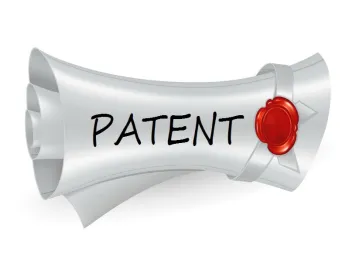Held: When a patentee sells a patented product, that product is no longer within the limits of the patent monopoly. Instead, the sale exhausts all patent rights, which yield to the common law against restraints on alienation.
In Impression Products, Inc. v. Lexmark, Int’l, Inc., the U.S. Supreme Court has ruled that (1) a patentee’s decision to sell a product exhausts all of its patent rights in that item, (2) its rights are exhausted irrespective of whether that sale takes place in the U.S. or a foreign country, and (3) to the extent the patentee has purported to restrict such rights contractually, it is limited to enforcement through contract law.
Details
A U.S. patent permits its patent holder “to exclude others from making, using, offering for sale, or selling [its] invention throughout the United States or importing the invention into the United States.” 35 U.S.C. § 154(a). For a period of 20 years, whoever engages in one of these activities, “without [the] authority” of the patent holder, may be liable for patent infringement under 35 U.S.C. § 271(a).
As a general matter, when a patentee sells one of its patented products, its patent rights in that product are said to be “exhausted.” The effect of this sale is that “[t]he purchaser and all subsequent owners are free to use or resell the product just like any other item of personal property, without fear of an infringement suit.”
Impression Products, a reseller of toner cartridges, refilled and resold cartridges made by Lexmark. Impression Products was sued for infringement of two product lines, one consisting of refurbished toner cartridges resold in the U.S., and another consisting of cartridges sold by Lexmark abroad and imported by Impression Products. The question presented in Impression Products was whether post-sale reuse and resale restrictions constitute “without authority” under the Patent Act such that they can be enforced through an infringement lawsuit. Secondarily, the question presented was whether the location of the sale by the patentee to entities outside of the U.S. would be treated any differently.
In reliance on the language “without authority” as contained in Section 271, the U.S. District Court for the Federal Circuit had concluded that patentees were entitled to restrict downstream resale and reuse of their products. It reasoned that the presumption of exhaustion does not apply where the seller restricts post-sale use because such sale is “without authority.”
U.S. Supreme Court Holding
The Supreme Court decision reversed the Federal Circuit, disagreeing with the Federal Circuit’s characterization of exhaustion as a presumption and instead concluding that exhaustion is a limit on the scope of the patentee’s rights. The monopoly provided by the Patent Act is exhausted by the patentee’s sale, which transfers rights wherein “the buyer is free and clear of an infringement lawsuit because there is no exclusionary right left to enforce.”
In addressing the implications of this decision for licensing, the Supreme Court clarified that, in its view, “[a] patentee can impose restrictions on licensees because a license does not implicate the same concerns about restraints on alienation as a sale.” Thus, the sale of the product is the sale by the licensee, treated “as if the patentee made the sale itself.”
The Supreme Court addressed foreign sales separately. Analogizing to recent copyright case law, the Supreme Court held that it could likewise find nothing in the Patent Act that would indicate an intention to restrict patent exhaustion as to foreign sales.
Takeaways
As the Supreme Court stated, “[e]xhaustion does not depend on whether the patentee receives a premium for selling in the United States, or the type of rights that buyers expect to receive. As a result, restrictions and location are irrelevant: what matters is the patentee’s decision to make a sale.” Companies with a business model that includes technology licensing as an integral part of their business will want to consider reviewing those licenses to ensure sufficient protection and evaluating their strategy with regard to enforcement of unauthorized downstream use or sales.



 />i
/>i

